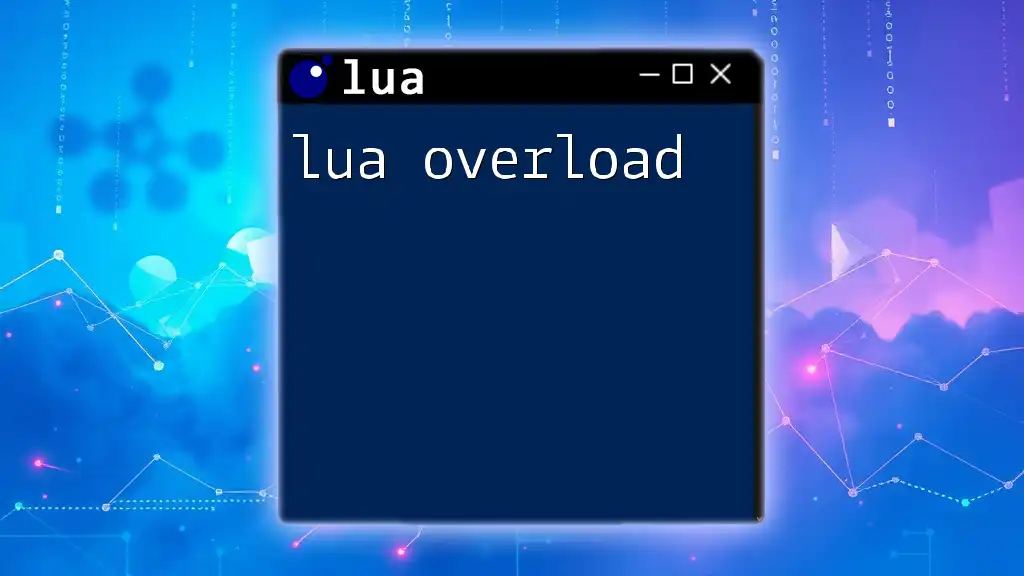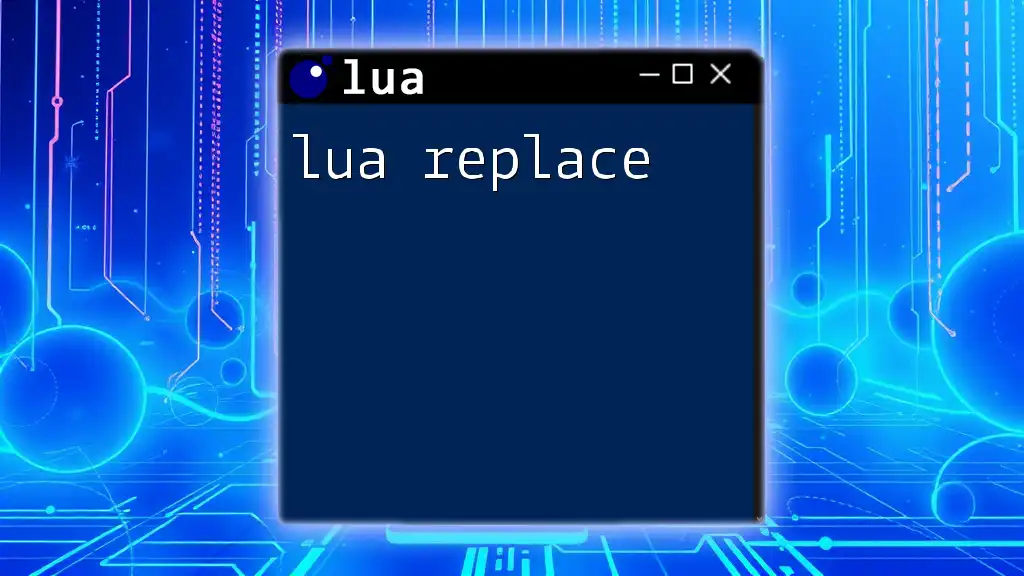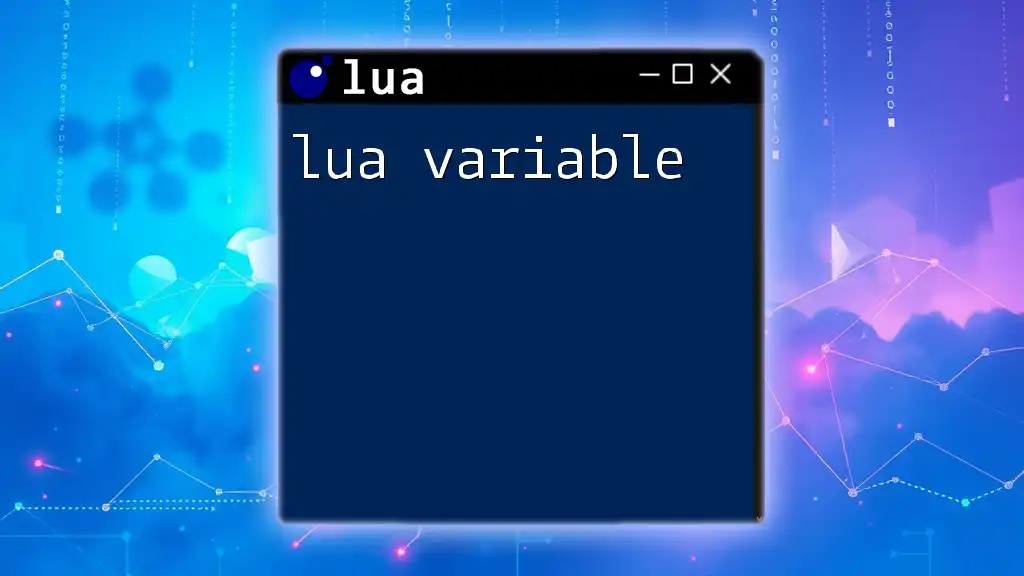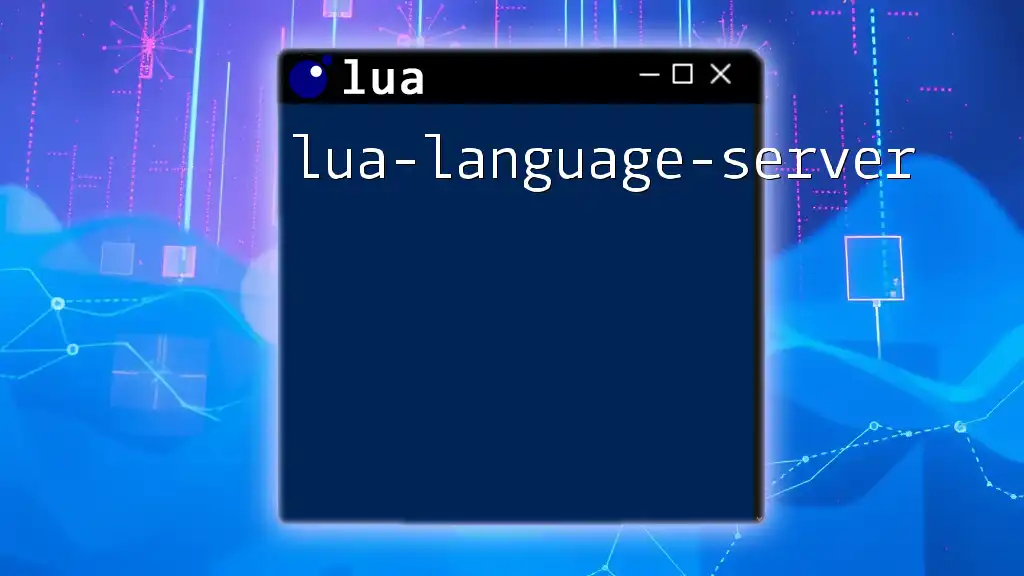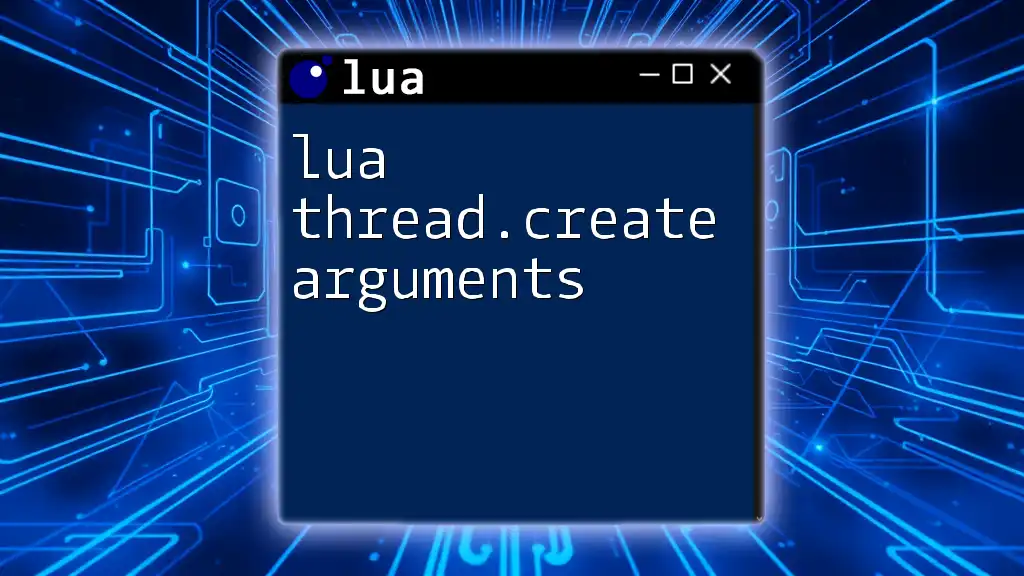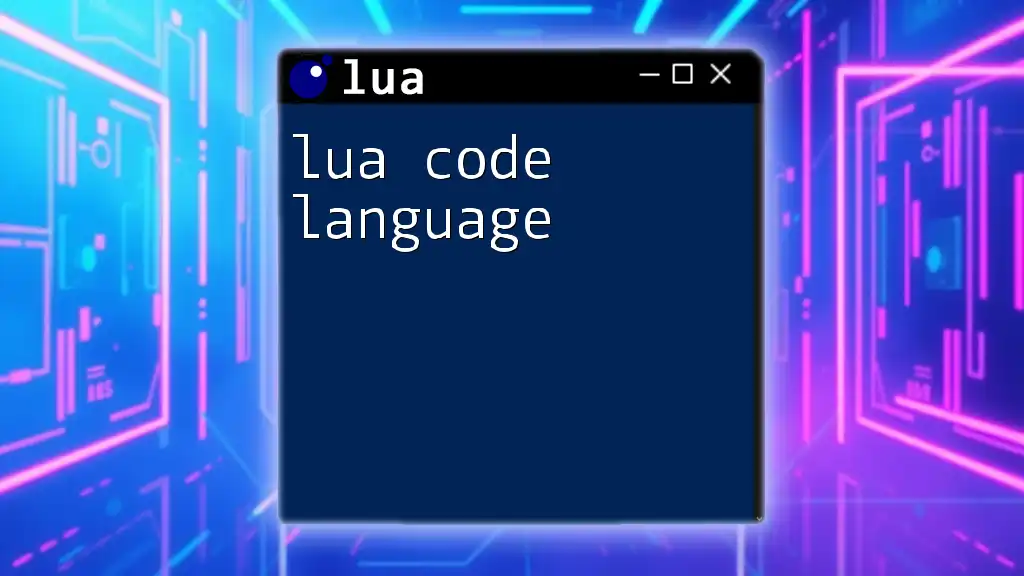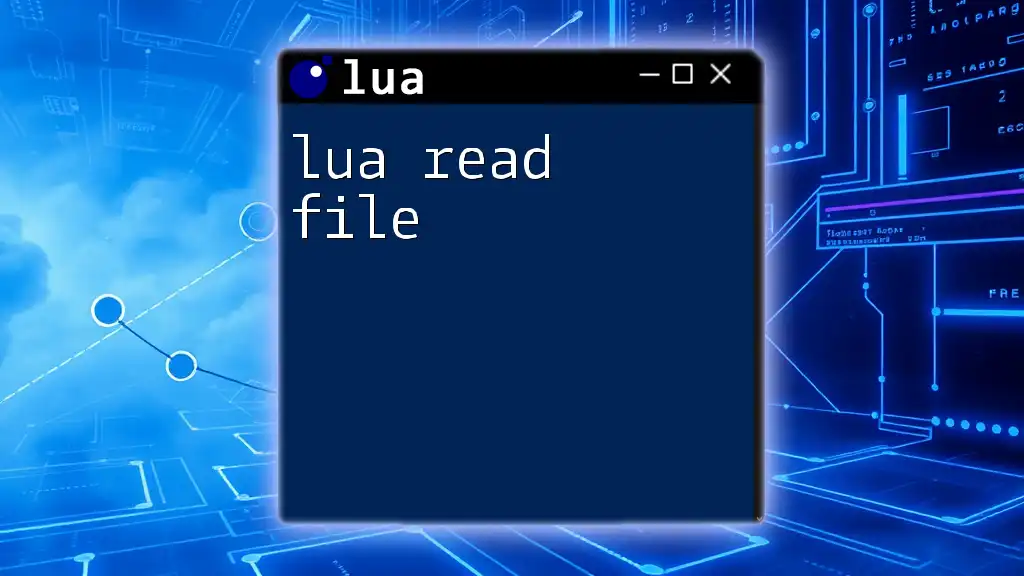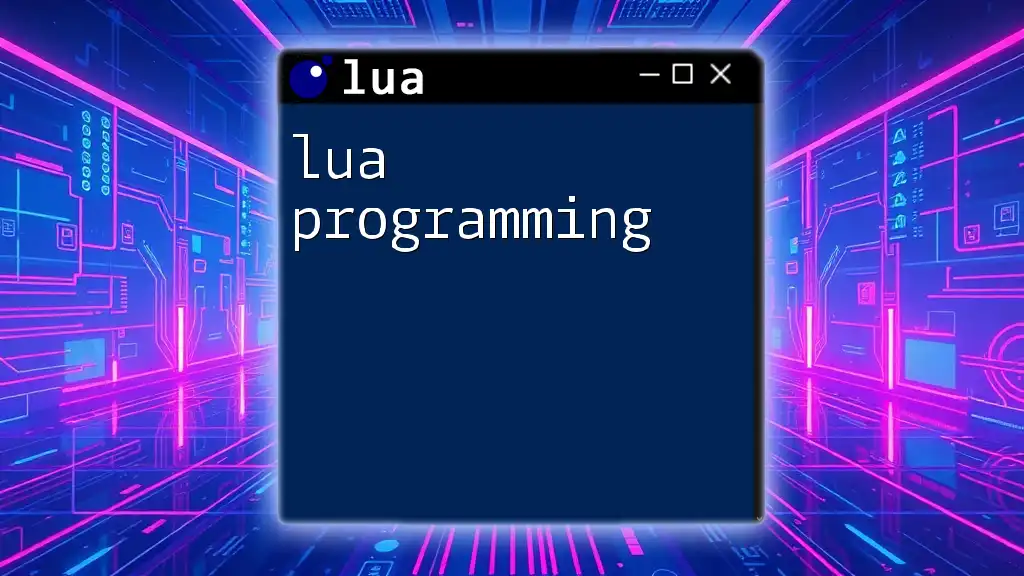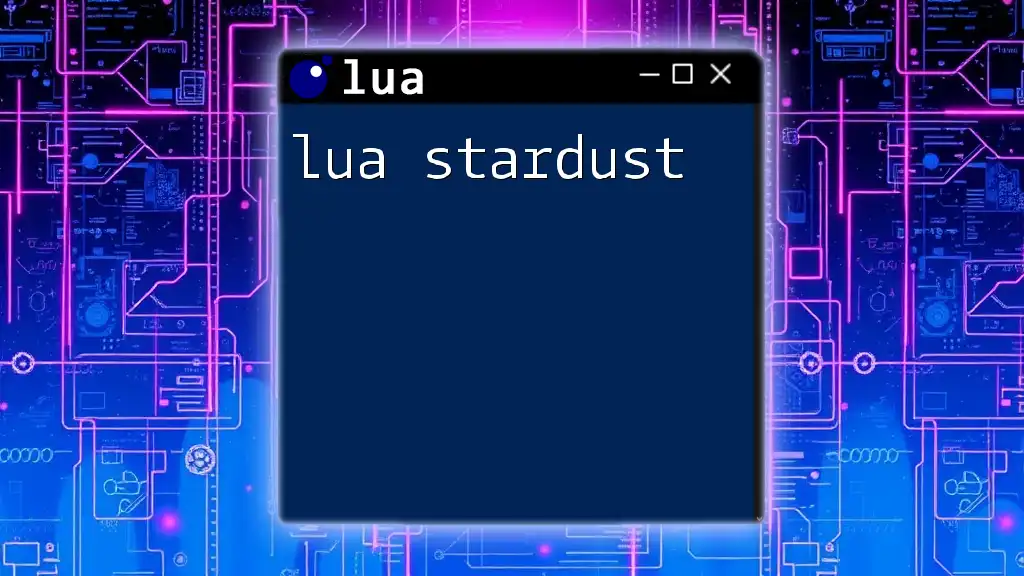Lua overload refers to the ability to define multiple functions with the same name but different parameters, allowing for flexible function calls based on the provided arguments.
Here’s a simple example:
function greet(name)
print("Hello, " .. name .. "!")
end
function greet(name, age)
print("Hello, " .. name .. "! You are " .. age .. " years old.")
end
-- Usage:
greet("Alice") -- Calls the first greet function
greet("Bob", 30) -- Calls the second greet function
Understanding Overloading in Lua
What is Overloading?
Overloading is a programming concept that allows multiple functions or operators to exist with the same name but different functionalities. In the realm of function overloading, this can mean the same function name handling different types or numbers of inputs. On the other hand, operator overloading lets developers redefine the behavior of standard operators for user-defined types.
Overloading is beneficial as it leads to cleaner code, reducing the need for multiple, uniquely named functions that perform similar tasks. Instead, developers can use the same function name for similar operations, enhancing code readability and maintainability.
Lua’s Approach to Overloading
Despite its simplicity and flexibility, Lua doesn’t support built-in overloading in the traditional sense found in languages like C++ or Java. Instead, it offers alternative strategies to simulate overloading, leveraging its dynamic typing and powerful table structures to create versatile functions that can handle varying input types and counts.
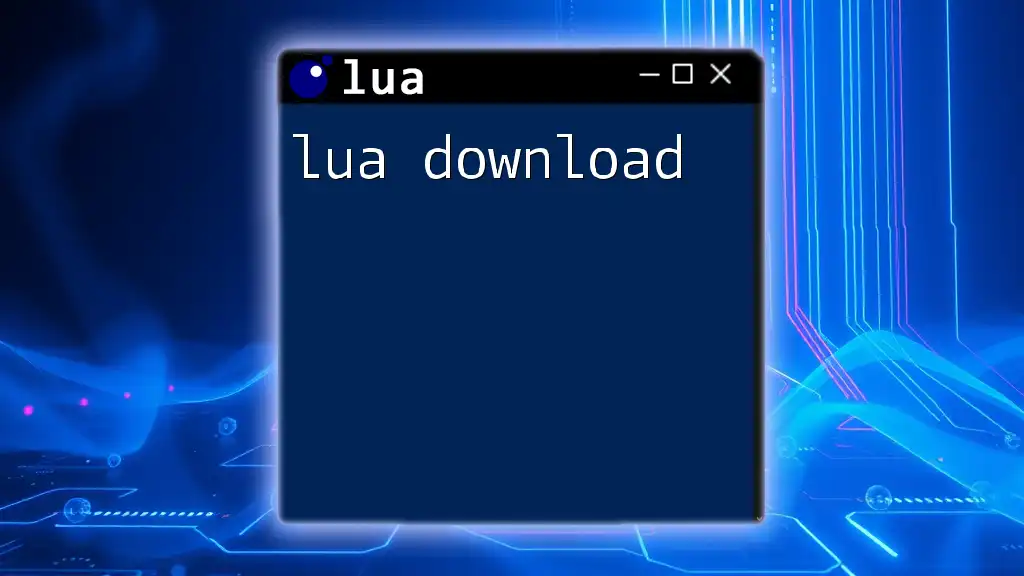
Function Overloading in Lua
Basics of Function Overloading
Function overloading allows the same function to perform different tasks based on varying arguments. It’s particularly useful for streamlining frequently used operations. By enabling a single function to handle multiple scenarios, developers can write less code while making it easier to follow.
Implementing Function Overloading
Using Table to Store Functions
One effective way to implement function overloading in Lua is by utilizing tables to store functions based on their expected input. This approach allows for easy invocation of different implementations based on specific criteria.
Consider the following example:
function add(num1, num2)
return num1 + num2
end
function add(num1, num2, num3)
return num1 + num2 + num3
end
local addFunctions = {
add2 = add,
add3 = function(num1, num2, num3) return add(num1, num2) + num3 end
}
print(addFunctions.add2(2, 3)) -- Output: 5
print(addFunctions.add3(2, 3, 4)) -- Output: 9
In this snippet, the `add` function is defined multiple times, providing different ways to perform addition. By organizing functions into a table, you simplify invoking relevant calculations based on the inputs you receive.
Using Variable Arguments
Another powerful feature of Lua is the ability to accept variable arguments using the `...` (ellipsis) operator. This flexibility allows a single function to handle a dynamic number of inputs.
Here's how it works:
function add(...)
local sum = 0
for _, value in ipairs({...}) do
sum = sum + value
end
return sum
end
print(add(2, 3)) -- Output: 5
print(add(2, 3, 4, 5)) -- Output: 14
In this example, the `add` function can handle any number of arguments, summing them dynamically. This approach eliminates the need for distinct function names, promoting cleaner and more maintainable code.
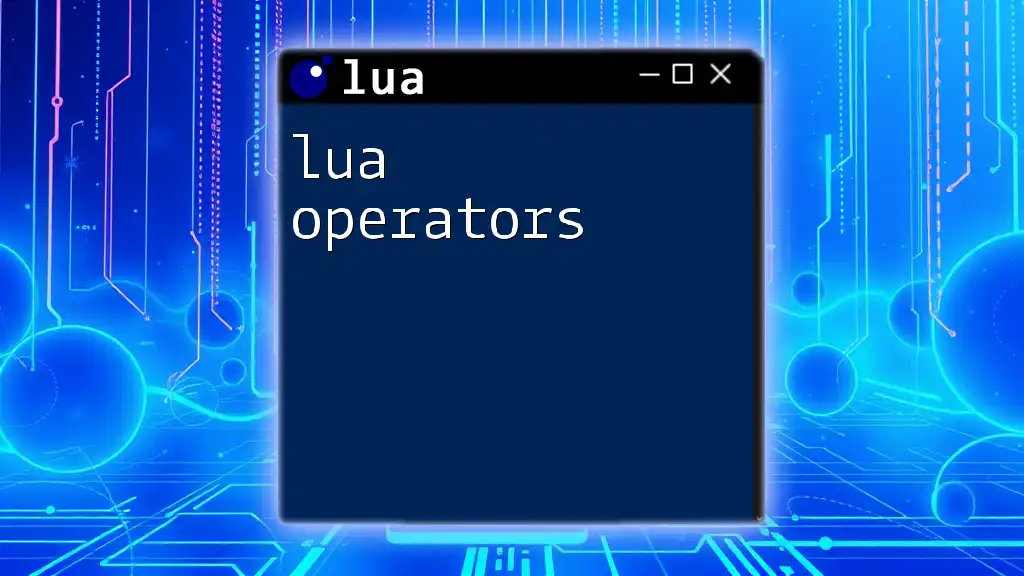
Operator Overloading in Lua
What is Operator Overloading?
Operator overloading allows developers to redefine how operators work with user-defined types. This can lead to code that closely mirrors mathematical expressions, making it more intuitive and easier to read.
For instance, if you create a custom class to represent mathematical vectors, operator overloading allows you to use the `+` operator to combine vectors seamlessly.
How to Implement Operator Overloading in Lua
Metatables and the __add Metamethod
In Lua, metatables are a powerful mechanism for implementing operator overloading. By defining a custom metatable for your class, you can specify how operators behave when interacting with instances of that class.
Here’s an example illustrating how to overload the addition operator (`+`) for a simple vector class:
Vector = {}
Vector.__index = Vector
function Vector:new(x, y)
local vector = {x = x, y = y}
setmetatable(vector, Vector)
return vector
end
function Vector:__add(other)
return Vector:new(self.x + other.x, self.y + other.y)
end
local v1 = Vector:new(1, 2)
local v2 = Vector:new(3, 4)
local v3 = v1 + v2 -- Using overloaded + operator
print(v3.x, v3.y) -- Output: 4 6
In this code, the method `__add` is defined within the `Vector` class to dictate how two vector objects should be added. This allows developers to use the familiar `+` operator when working with vector instances, making the code more expressive.
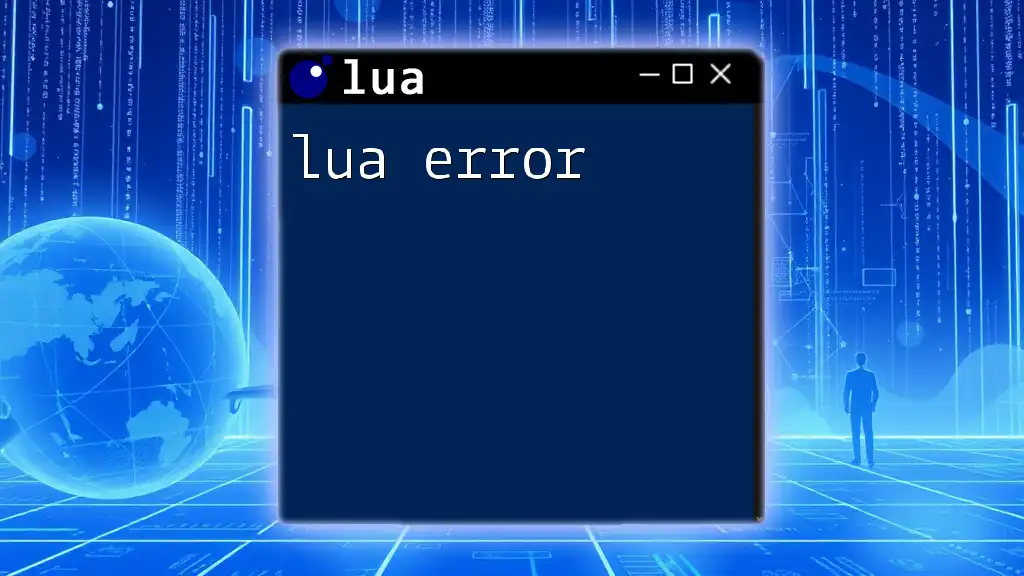
Performance Considerations
When utilizing overloads in Lua, developers should be cognizant of performance trade-offs. While overloading enhances code readability and reduces clutter, it may introduce some overhead due to dynamic checking of function signatures or the flexibility of working with variable arguments.
To optimize performance, it’s advisable to:
- Limit the complexity of overloaded functions. Aim for simplicity in design, ensuring that each function does not become overly convoluted.
- Regularly profile your code to monitor performance implications of overloading.

Best Practices for Overloading in Lua
Keep it Simple
A fundamental principle of function or operator overloading is to keep functionality simple. Overloaded functions should be intuitive and easy to follow. Avoid creating overly complex functions that can confuse the reader about the underlying implementation.
Documenting Overloaded Functions
Every overloaded function should be well-documented, outlining the expected input types and outcomes. Clear documentation can prevent misunderstandings and make maintenance easier in the long term.
Testing Overloaded Functions
Thorough testing is crucial. Ensure that each overloaded function is included in your unit tests to verify its behavior with different sets of parameters. Use libraries designed for testing in Lua to streamline this process.
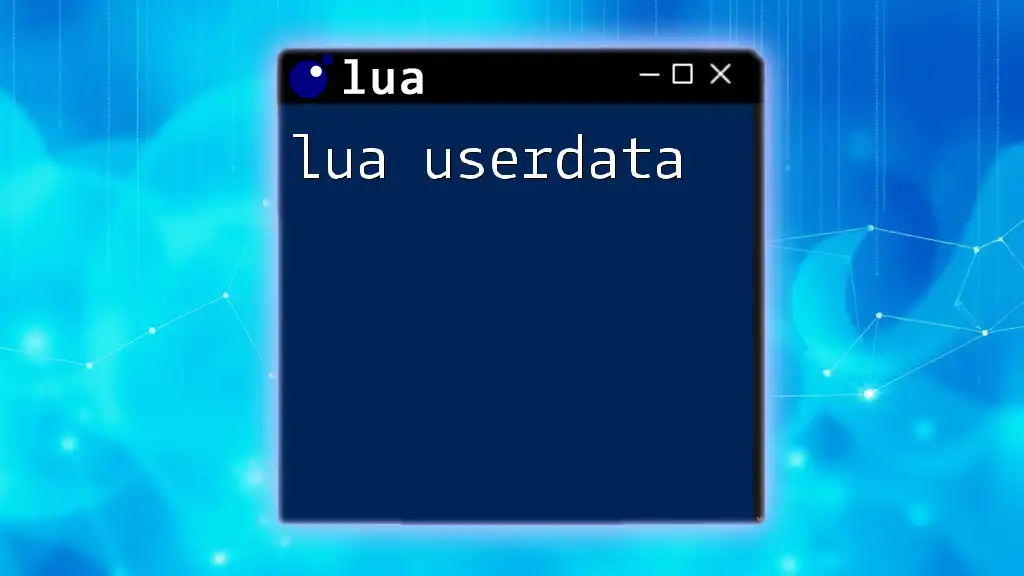
Conclusion
Lua overload, including function and operator overloading, is a powerful technique that can significantly enhance the expressiveness and maintainability of your code. By understanding the methods of implementing overloading through tables, variable arguments, and metatables, you can optimize your programming workflow. Embrace best practices and keep your code simple and well-documented, paving the way for effective software development in Lua.

Additional Resources
To further enhance your understanding of Lua, consider exploring recommended books and online courses that delve deeper into the language's features. Engaging with the Lua community through forums and documentation can also provide valuable insights and tips for mastering Lua overload techniques.

